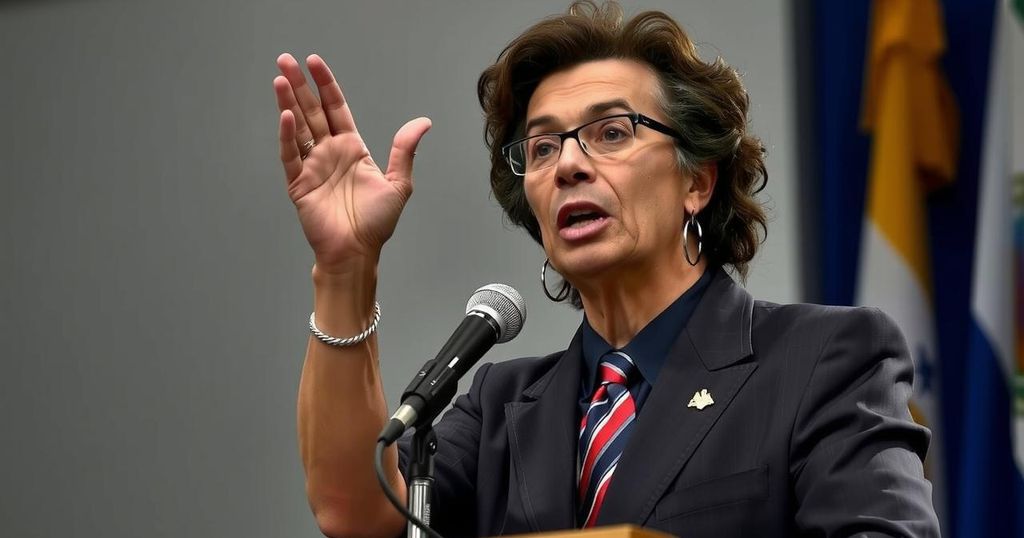Yamandú Orsi has won the presidency of Uruguay, defeating Álvaro Delgado. His victory marks a shift back to leftist rule after five years of conservative governance. Orsi emphasized the need for national dialogue and has pledged to tackle crime and enhance economic recovery. His campaign was notably supported by former president José Mujica, highlighting a focus on progressive values amidst current challenges.
Yamandú Orsi, a left-wing candidate, has officially been declared the president of Uruguay as of November 24, marking a significant political shift after five years of conservative leadership. The election was contested between Orsi, representing the Frente Amplio (Broad Front) alliance, and Álvaro Delgado of the National Party, closely aligned with the center-right Republican Coalition of the outgoing President Luis Lacalle Pou. Orsi secured a total of 1,123,420 votes, compared to Delgado’s 1,042,001 votes with approximately 94.4% of ballots counted, underscoring a decisive victory in a closely watched election.
In his victory declaration, Mr. Orsi emphasized the importance of fostering national dialogue, stating he would consistently call for discussions aimed at determining the best solutions for the country. While he expressed aspirations for change, analysts anticipate no radical shifts in Uruguay’s economic policies, as Orsi has promised an approach that balances progress with stability. Both candidates committed to addressing drug-related crime and enhancing economic growth, aiming to recover from challenges posed by the Covid-19 pandemic and severe drought conditions.
The election, a pivotal event for a nation of 3.4 million people, illustrates a return to leftist governance after a notable period of center-right control, which began around 2020. During the earlier regime, rising crime and drug trafficking concerns prompted voters to favor a shift. Uruguay, known for its high social stability and strong democratic values, has a history of progressive reforms under leftist leadership, including the legalization of abortion and same-sex marriage as well as pioneering cannabis legalization in Latin America.
Former president José Mujica’s support significantly bolstered Orsi’s campaign; Mujica, a revered figure known for his humble lifestyle, underscored his commitment to the future of the younger generation. He poignantly remarked regarding his own mortality, expressing concern for the legacy left for the youth. The outcome of this election has implications not only for Uruguay’s political landscape but for future governance geared toward tackling pressing social issues and maintaining economic resilience.
The recent electoral outcome in Uruguay underscores a pivotal moment in the nation’s political evolution, reflecting a shift back to leftist governance after an extended period of conservative rule. The Frente Amplio, Orsi’s party, previously held power for three consecutive terms until being outvoted in 2020, relatively influenced by public concerns over rising crime rates and drug trafficking. Given Uruguay’s reputation as a stable democracy in Latin America, the electoral process highlighted the societal priorities such as perceived insecurity, economic recovery, and progressive reforms that have marked their modern history.
Yamandú Orsi’s victory is indicative of a significant political reconfiguration in Uruguay, reflecting voters’ desires for change after a conservative tenure. While the new administration is expected to pursue dialogue and policy continuity, pressing issues such as crime and economic recovery remain at the forefront of Orsi’s agenda. As Uruguay reverts to a left-wing government, it is vital to observe how these leadership dynamics will address the challenges ahead while fostering the progressive values previously established.
Original Source: www.lemonde.fr







